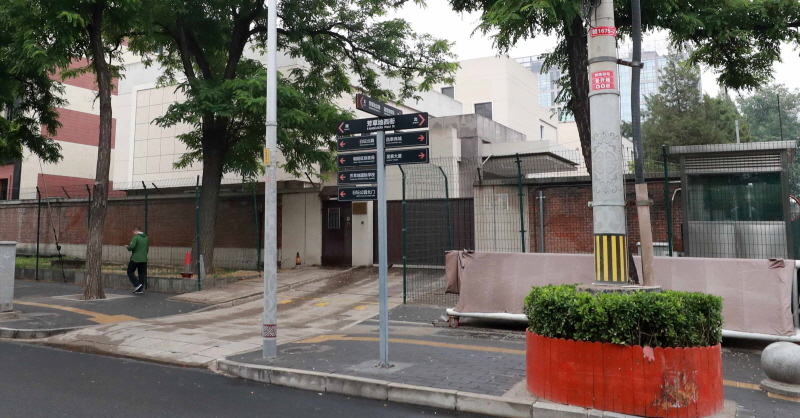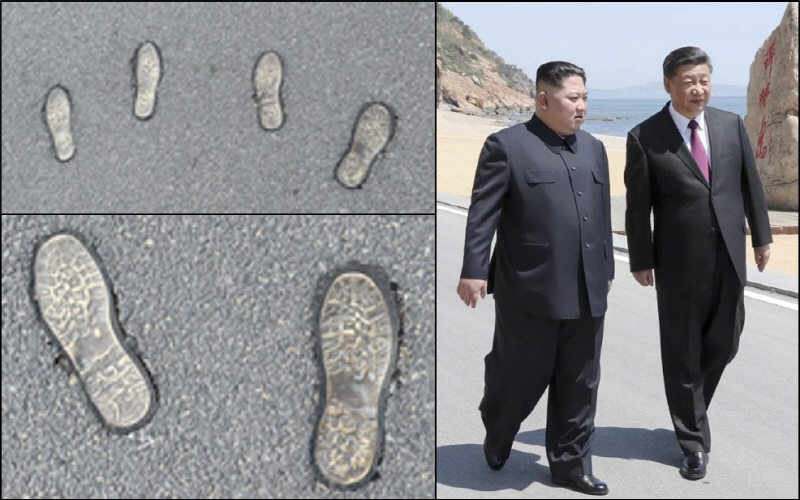Amid growing signs of friction between North Korea and China, Kim Jong-un, the North Korean leader, has reportedly instructed North Korean diplomats stationed in China to stop paying heed to Chinese authorities. This move comes as North Korea appears to be openly challenging China by restricting the movement of Chinese nationals within North Korea.
Multiple sources familiar with North Korean affairs informed the JoongAng Ilbo, a leading Korean newspaper affiliated with the Korea Daily, on July 30 that a directive from Kim Jong-un stating “there is no need to consider China’s opinion” was recently issued to North Korean embassies in China.
The directive, known as a “No. 1 Order,” was delivered earlier this month, following Russian President Vladimir Putin’s visit to North Korea on June 19, during which he and Kim signed a Comprehensive Strategic Partnership Agreement.

Experts interpret this move as Kim Jong-un giving explicit permission for aggressive activities without regard for maintaining friendly relations with China. This could lead to an increase in illicit activities by North Korean embassies abroad, such as smuggling, procurement of luxury goods, and intelligence gathering.
Tensions between North Korea and China have been noticeable since Kim’s visit to Russia in September last year, where he held a summit with Putin and significantly strengthened bilateral cooperation. China, wary of the North Korea-Russia alliance, seems disinclined to appear as part of a trilateral coalition. This stance aligns with China’s recent efforts to manage tensions with the United States and improve relations with South Korea and Japan.

In a symbolic move, China removed the “footprint bronze plaque” in May, which was installed to commemorate Kim Jong-un’s stroll with Chinese President Xi Jinping during his visit to Dalian in May 2018. Additionally, earlier this month, China reportedly demanded the repatriation of all North Korean workers within its borders, a significant source of foreign currency for North Korea.
North Korea responded to the joint declaration on the “denuclearization of the Korean Peninsula” adopted at the Korea-Japan-China summit on May 27 by launching its second military reconnaissance satellite that same night.
Internally, North Korea is increasing control over Chinese nationals residing in the country who have served as civilian bridges between the two nations. A source indicated that the North Korean government has recently restricted the movement of Chinese residents and cracked down on North Korean citizens visiting Chinese households.
The acceptance of the Chinese yuan within North Korea has also been partially restricted. A high-ranking defector, who requested anonymity, mentioned that while the yuan was previously accepted in markets in Pyongyang, it is now prohibited. According to a report by the South Korean Ministry of Unification, yuan accounted for 68.4% of the currency circulated in North Korean markets from 2016 to 2020, more than double that of the North Korean won (25.7%)
Efforts to block external influences have seen North Korea actively curtailing exposure to South Korean culture (Hallyu) and now extending these measures to Chinese cultural influences. “North Korean authorities have banned the viewing of Chinese movies by residents and soldiers and have confiscated storage media containing Chinese films,” another source said.
North Korean state-run media, including Korean Central Television, have significantly reduced the broadcast of Chinese films in their foreign film segments, in stark contrast to the frequent airing of Russian films from the Soviet era around the time of Putin’s visit last month.
The tension was also evident in official events. U.S.-based NK News reported on the 29th that Wang Yajun, the Chinese ambassador to North Korea, was notably absent from the commemoration ceremony for the 71st anniversary of the Korean War Armistice Agreement held in Pyongyang on the night of July 27. NK News described the absence of the Chinese ambassador, a historical ally and Korean War participant, as “highly unusual.”
Previously, on July 11, the attendance of Kim Seung-chan, president of Kim Il-sung University and chairman of the North Korea-China Friendship Association, at the 63rd anniversary celebration of the North Korea-China Friendship Treaty in Pyongyang was seen as a deliberate lowering of the event’s significance. Last year, Kang Yun-sok, vice chairman of the Supreme People’s Assembly Standing Committee, attended the event, highlighting a downgrade in representation this year.
Trade between North Korea and China has also significantly decreased. According to China’s General Administration of Customs, North Korea imported $5.71 million worth of rice from China in the first half of this year, just a tenth of the $53.39 million imported during the same period last year, Voice of America reported.
Similar patterns emerged in 2016 when North Korea conducted high-intensity strategic provocations, such as nuclear tests and long-range rocket launches, prompting China to support UN Security Council sanctions against North Korea. At that time, North Korea also restricted the issuance of travel permits to Chinese nationals within its borders.
Oh Kyung-seop, a researcher at the Korea Institute for National Unification, noted that unlike Russia, which faces Western sanctions due to the war in Ukraine, China does not fully align with North Korea’s anti-U.S. stance and strategic interests. “Unless China meets North Korea’s demands, such as nullifying sanctions or providing military technology support, relations between the two countries are likely to remain strained for the foreseeable future,” Oh added.
However, the strategic interests of North Korea and China could swiftly realign, leading to a rapid improvement in relations. Analysts generally believe that while China may be trying to rein in North Korea, it has no intention of relinquishing its influence over the country as its primary patron.
Historically, during the 2016-2017 sanctions phase, relations between North Korea and China were strained, but they quickly warmed in 2018 as North Korea-U.S. summit talks unfolded. Kim Jong-un met with President Donald Trump after several summit meetings with President Xi Jinping, and in June 2019, Xi Jinping made his first visit to North Korea, signaling a swift recovery of high-level exchanges.
BY YEONGGYO CHUNG, HYUNJU PARK, YOUNGNAM KIM [chung.yeonggyo@joongang.co.kr]






